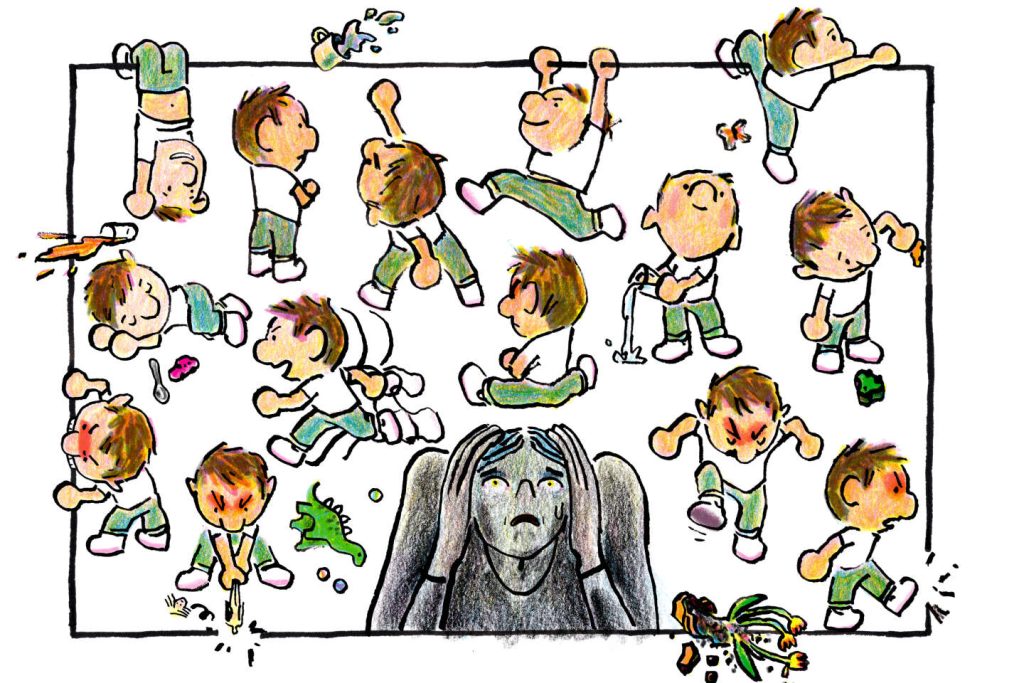Myriam Molinier’s son, Luc (name changed for privacy), was described as a “little monster” from a very young age, and even as “crazy” by Myriam’s father. Luc was every parent’s nightmare – a 4-year-old who could suddenly start throwing chairs in the kitchen and try to break them. His behavior included running away, embarrassing public outbursts, and a family on the verge of collapse that eventually led to a divorce. Myriam, now 52 years old and the manager of Neurodiff’Formation, a company that aims to educate people about neurodevelopmental disorders, shares the challenges she faced as a parent of a child with such difficult behaviors.
Luc struggled to maintain attention, complete tasks, stay still, and control his impulses, all hallmark symptoms of attention deficit hyperactivity disorder (ADHD). Around 5.9% of children under 18 are estimated to have ADHD, according to health insurance data. At the age of 6, Luc was diagnosed with ADHD and started taking medication, methylphenidate, which is commonly used to improve concentration and impulsivity control in children. Myriam believes that the medication helped to regulate her son’s behavior and made a significant difference in his daily life.
In France, around 0.7% of children aged 3-17 used methylphenidate in 2019, according to a study published in the journal Neuropsychiatrie de l’enfance et de l’adolescence in February 2022. This percentage is much lower than in some US states where one in ten children are on methylphenidate. However, the consumption of methylphenidate has more than doubled in France over the past decade, as highlighted in a report by the High Council for Family, Childhood, and Aging (HCFEA) published in March 2023. The increasing demand for methylphenidate has even led to shortages of certain medications containing the substance, as indicated by the national agency for drug safety.
Attention disorders are becoming increasingly recognized by the general public. In December 2023, French President Emmanuel Macron included ADHD in his national strategy for neurodevelopmental disorders. For many exhausted and overwhelmed parents, the diagnosis of ADHD can offer hope and relief, while the treatment with medications like methylphenidate may seem like a miraculous solution. The widespread awareness and acceptance of ADHD as a legitimate disorder highlight the importance of early diagnosis and appropriate treatment for affected children.
Despite the growing understanding and acceptance of ADHD, there is still a stigma attached to children with behavioral issues. Parents like Myriam Molinier have faced judgment, isolation, and criticism for their child’s challenging behavior. However, with the right support and resources, children with ADHD can thrive and lead fulfilling lives. Education, awareness, and access to effective treatments are key to helping families navigate the complexities of raising a child with ADHD and other neurodevelopmental disorders. The journey may be difficult, but with persistence and understanding, positive outcomes are possible for both the child and their loved ones.


